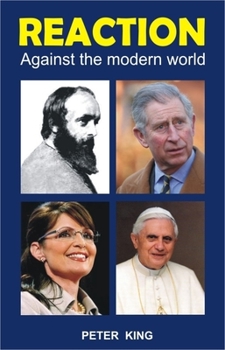Reaction: Against the Modern World
In this book the author explores the different facets of reaction and suggests that there is more to the concept than just a gratuitous insult. He argues that reaction depends on two things: first, a particular view of the world that favours tradition and the way that things are; and second, the disposition to avoid change and its consequences and so to prefer a settled and steady life. These two facets can be articulated as a coherent set of arguments, which have indeed been made by thinkers of the past such as Edmund Burke and Joseph de Maistre, as well as contemporary figures such as Roger Scruton. But we can also see the desire to minimise change and ensure stability as forming a common sense reaction to the action of elites who seem to be unresponsive to the view of the majority. The book looks at the concept of reaction is some detail, exploring how it has developed and taken on its current associations. The key arguments that can be associated with reaction are explored. A link between the two forms of reaction is the critique of modernism and this antimodernism is discussed in detail and linked to the importance of tradition. Recent critics of modernism such as the Prince of Wales and Ren Gu non are considered and their views assessed. The book, therefore, seeks to understand the reactionary impulse and to contextualise it within the apparently relentless focus on progress and change as ends in themselves.





